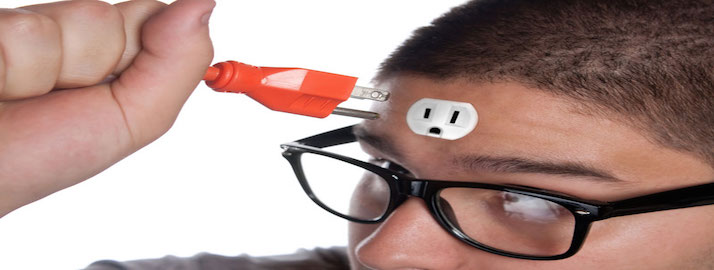The Importance of “Unplugged” Time
By the time most American kids are toddlers, they are regularly exposed to technology. Whether it’s an iPad, iPhone or electronic learning device, technology is already taking over attention spans at a young age. Let’s not forget all the TV shows that are made for kids now, and video games, creating generations of inactive children and raising the obesity rate. Adults are even more plugged in, with studies showing that over 80% would be completely lost if they had to go one day without a cell phone.
While apps for kids can help different learning styles, and mobile devices keep us connected and able to work efficiently and remotely, it is important to detach every so often. Here we explore why it’s good for a healthy mind and body for adults and kids to unplug, and some great alternative ways to spend your free time.
Why We Need to Unplug
Technology Causes Poor Sleep Patterns
Kids who play video games or watch TV before bed have a risk of disturbed sleep patterns. The light that emits from electronics can disrupt sleep, since it interferes with the production of melatonin, our sleep hormone. All devices should be turned off at least one hour before bed so kids can get relaxed mentally to fall asleep.
Reduce the Stress Caused by Social Media
When we unplug, we stay off our social media sites like Facebook and Instagram, which have been known to cause stress. With the advancement of technology has come a legitimate psychological disorder: Fear of Missing Out (FOMO). Since we have a constant stream of updates from our “friends” about what they’re doing, down to their food pics, it causes humans to feel like they are missing something or not leading ban exciting enough life. Research shows that people feel more jealous, lonely and dissatisfied with their life after visiting Facebook. Unplugging teaches us to be content in our current space, and to appreciate the lives we have.
Forgetting What is Truly Important
Even though we can text, Skype, Tweet, Face Time and Post to get in touch with our friends and even sometimes with family members in the same household, life is still about personal contact. When you talk with someone face-to-face, deeper connections are made than what goes on when you’re separated by a screen. This is especially important for fostering healthy relationships with your children, and how they learn to relate to and treat others. Social skills are critical for a healthy life and making contacts down the road. Parents need to be a good example and teach their kids that devices are not allowed at certain times of the day, such as meal times.
Alternatives to Technology
There are plenty of healthy alternatives to technology that adults and kids can participate in together:
- Games: Board and card games are a great alternative to TV. It brings the family together, and teaches valuable skills like turn taking and how to interact face-to-face.
- Reading: Allows the child’s imagination and literacy skills to develop.
- Outdoor Activities: In the winter, take the kids sledding, snowshoeing, skiing or ice fishing. In the summer you can bond over a camping or hiking trip, followed up with a marshmallow roast.
- Crafting: Instead of zoning out in front of a TV or playing video games, teach your kids crafts that are done by hand. Boys or girls can learn to build, paint, sculpt, scrapbook and more. It keeps the creative juices flowing and teaches them the satisfaction of how it feels to accomplish a task from start to finish.
- Sports: Finding a sport your child loves will keep them healthy and teach relationship skills.





Leave a Reply
Want to join the discussion?Feel free to contribute!